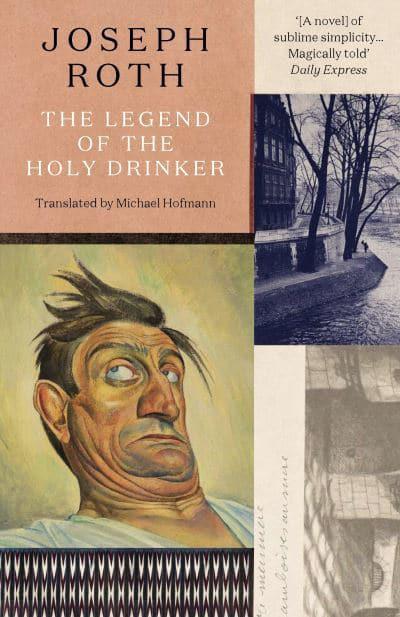Sunday, 17 September 2023
The Legend Of The Holy Drinker by Joseph Roth Review
Andreas, a homeless drunk in 1934 Paris, has an unexpected stroke of luck. After a generous stranger gives him 200 francs, Andreas - as a man of honour - endeavours to repay the loan to the church of St Therese. But this is just the first in a series of “miracles” the vagrant experiences in Joseph Roth’s final book, The Legend of the Holy Drinker.
I’d never heard of Joseph Roth, let alone read any of his books, before this one, but I’m glad to have made its acquaintance as it’s a charming little story.
The translator Michael Hofmann provides some useful context to the book at the start. Roth was an alcoholic who lived in hotels, much like Andreas, but crucially despised the way the world was going. He wrote this book in the first months of 1939 and then WW2 began in September of that year.
Maybe that’s why he set the book in 1934, when the spectre of Hitler and fascism was still relatively less urgent and menacing, and why the story is so upbeat and almost absurdly rose-tinted - it’s a reaction to the dark times and Roth’s own abysmal, failing health (he would die of alcoholism a month after finishing this book).
Going by this book alone, you would think being a vagrant was the most romantic thing in the world - Andreas doesn’t really seem to suffer the problems that follow homelessness or addiction. Down and Out in Paris and London this ain’t! The beautiful woodcut illustrations from Frans Masereel’s Passionate Journey that accompany each chapter in this edition further adds to the fairytale quality of the book.
Andreas’ addiction is gently hinted at occasionally, as he is repeatedly unable to finish his modest quest by constantly being distracted by bars, but Roth seems to play it for laughs more than anything. And it’s this lack of any real conflict that makes it a less-than-enthralling read - Andreas fails upwards until he doesn’t. It’s a short book but there’s little to compel you to keep reading so I found myself putting it down more than once even though it’s very easily finished in one sitting.
The Legend of the Holy Drinker may be a very sanitised depiction of a horrible disease (at the end of his life, Roth’s liver was so distended it could be seen through his coat) but it’s a charming novella and a wonderful riposte to the time in which it was created, both in the author’s life and the world at large: a final smile in the face of oblivion. The fact that he was able to produce something so well composed and coherent, despite his shocking health, speaks to Roth’s abilities as a writer and storyteller. My first, but definitely not last, experience with the legend that was Joseph Roth.
Labels:
3 out of 5 stars,
Fiction
Subscribe to:
Post Comments (Atom)

No comments:
Post a Comment